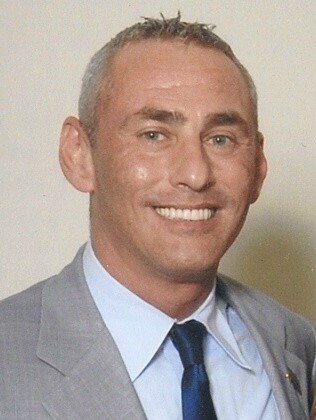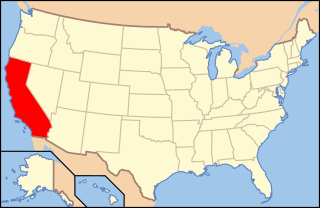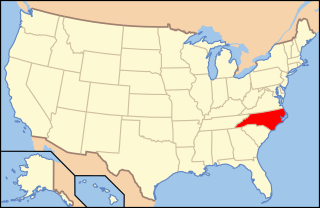Related Research Articles
A domestic partnership is an intimate relationship between people, usually couples, who live together and share a common domestic life but who are not married. People in domestic partnerships receive legal benefits that guarantee right of survivorship, hospital visitation, and other rights.
A California domestic partnership is a legal relationship, analogous to marriage, created in 1999 to extend the rights and benefits of marriage to same-sex couples. It was extended to all opposite-sex couples as of January 1, 2016 and by January 1, 2020 to include new votes that updated SB-30 with more benefits and rights to California couples choosing domestic partnership before their wedding. California Governor Newsom signed into law on July 30, 2019.
Same-sex marriage has been legal in the District of Columbia since March 3, 2010. On December 18, 2009, Mayor Adrian Fenty signed a bill passed by the D.C. Council on December 15 legalizing same-sex marriage. Following the signing, the measure entered a mandatory congressional review of 30 work days. Marriage licenses became available on March 3, and marriages began on March 9, 2010. The District of Columbia was the first jurisdiction in the United States below the Mason–Dixon line to allow same-sex couples to marry.
In the United States, domestic partnership is a city-, county-, state-, or employer-recognized status that may be available to same-sex couples and, sometimes, opposite-sex couples. Although similar to marriage, a domestic partnership does not confer any of the myriad rights and responsibilities of marriage afforded to married couples by the federal government. Domestic partnerships in the United States are determined by each state or local jurisdiction, so there is no nationwide consistency on the rights, responsibilities, and benefits accorded domestic partners.

Don Korotsky Norte is an American gay rights political activist. Norte's career covers over thirty years of public service with federal, state, and local government, including the Department of Defense, the General Services Administration, and the New York State Department of Parks, Recreation and Historic Preservation.
Same-sex unions in the United States are available in various forms in all states and territories, except American Samoa. All states have legal same-sex marriage, while others have the options of civil unions, domestic partnerships, or reciprocal beneficiary relationships. The federal government only recognizes marriage and no other legal union for same-sex couples.
This is a list of notable events in the history of LGBTQ rights that took place in the year 2009.
Same-sex marriage has been legally recognized in Nevada since October 9, 2014, when a federal district court judge issued an injunction against enforcement of Nevada's same-sex marriage ban, acting on order from the Ninth Circuit Court of Appeals. A unanimous three-judge panel of the Ninth Circuit had ruled two days earlier that the state's ban on same-sex marriage was unconstitutional. Same-sex marriage was previously banned by an amendment to the Constitution of Nevada, which was approved by voters in 2002. The statutory ban on same-sex marriages was repealed by the Nevada Legislature in 2017, and the constitutional ban was repealed by voters in 2020 by 62–38 percent.
Same-sex marriage has been legal in Michigan since the U.S. Supreme Court's ruling in Obergefell v. Hodges on June 26, 2015. On March 21, 2014, the U.S. District Court for the Eastern District of Michigan ruled the state's denial of marriage rights to same-sex couples unconstitutional. More than 300 same-sex couples married in Michigan the next day before the Sixth Circuit Court of Appeals stayed enforcement of the district court's decision. On November 6, the Sixth Circuit reversed the lower court's ruling and upheld Michigan's ban on same-sex marriage. The Supreme Court overturned the Sixth Circuit's ruling and legalized same-sex marriage nationwide in the United States on June 26.
As of 2015, all 50 U.S. states and the District of Columbia legally recognize and document same-sex relationships in some fashion, be it by same-sex marriage, civil union or domestic partnerships. Many counties and municipalities outside of these states also provide domestic partnership registries or civil unions which are not officially recognized by the laws of their states, are only valid and applicable within those counties, and are usually largely unaffected by state law regarding relationship recognition. In addition, many cities and counties continue to provide their own domestic partnership registries while their states also provide larger registries ; a couple can only maintain registration on one registry, requiring the couple to de-register from the state registry before registering with the county registry.
Same-sex marriage has been legally recognized in North Carolina since October 10, 2014, when a U.S. District Court judge ruled in General Synod of the United Church of Christ v. Cooper that the state's denial of marriage rights to same-sex couples was unconstitutional. Governor Pat McCrory and Attorney General Roy Cooper had acknowledged that a recent ruling in the Fourth Circuit Court of Appeals and the U.S. Supreme Court's decision not to hear an appeal in that case established the unconstitutionality of North Carolina's ban on same-sex marriage. State legislators sought without success to intervene in lawsuits to defend the state's ban on same-sex marriage. North Carolina was the 28th U.S. state to legalize same-sex marriage.
Before the legalization of same-sex marriage in Florida in January 2015, same-sex couples were able to have their relationships recognized in some Florida localities that had established a legal status known as domestic partnership.

Lesbian, gay, bisexual, transgender, and queer (LGBTQ) people in the U.S. state of Georgia enjoy most of the same rights as non-LGBTQ people. LGBTQ rights in the state have been a recent occurrence, with most improvements occurring from the 2010s onward. Same-sex sexual activity has been legal since 1998, although the state legislature has not repealed its sodomy law. Same-sex marriage has been legal in the state since 2015, in accordance with Obergefell v. Hodges. In addition, the state's largest city, Atlanta, has a vibrant LGBTQ community and holds the biggest Pride parade in the Southeast. The state's hate crime laws, effective since June 26, 2020, explicitly include sexual orientation.
This is a list of events in 2011 that affected LGBTQ rights.

California is seen as one of the most liberal states in the U.S. in regard to lesbian, gay, bisexual, transgender, and queer (LGBTQ) rights, which have received nationwide recognition since the 1970s. Same-sex sexual activity has been legal in the state since 1976. Discrimination protections regarding sexual orientation and gender identity or expression were adopted statewide in 2003. Transgender people are also permitted to change their legal gender on official documents without any medical interventions, and mental health providers are prohibited from engaging in conversion therapy on minors.

Lesbian, gay, bisexual, transgender, and queer (LGBTQ) people in the U.S. state of Wisconsin enjoy most of the same rights as non-LGBTQ people. However, the transgender community may face some legal issues not experienced by cisgender residents, due in part to discrimination based on gender identity not being included in Wisconsin's anti-discrimination laws, nor is it covered in the state's hate crime law. Same-sex marriage has been legal in Wisconsin since October 6, 2014, when the U.S. Supreme Court refused to consider an appeal in the case of Wolf v. Walker. Discrimination based on sexual orientation is banned statewide in Wisconsin, and sexual orientation is a protected class in the state's hate crime laws. It approved such protections in 1982, making it the first state in the United States to do so.

Lesbian, gay, bisexual, transgender, and queer (LGBTQ) people in the U.S. state of North Carolina may face legal challenges not experienced by non-LGBTQ residents, or LGBT residents of other states with more liberal laws.
The Domestic Partner Task Force was a governmental body established in 1983 by the Californian City of Berkeley's Human Relations and Welfare Commission to draw up the structure of the city's domestic partnership program. Leland Traiman, then the vice-chair of the HRWC and a gay rights activist, was appointed as leader of the Task Force.
The U.S. state of Texas issues marriage licenses to same-sex couples and recognizes those marriages when performed out-of-state. On June 26, 2015, the United States legalized same-sex marriage nationwide due to the U.S. Supreme Court's decision in Obergefell v. Hodges. Prior to the U.S. Supreme Court's ruling Article 1, Section 32, of the Texas Constitution provided that "Marriage in this state shall consist only of the union of one man and one woman," and "This state or a political subdivision of this state may not create or recognize any legal status identical or similar to marriage." This amendment and all related statutes have been ruled unconstitutional and unenforceable. Some cities and counties in the state recognize both same-sex and opposite-sex domestic partnerships.
Same-sex marriage has been legal in Tennessee since the U.S. Supreme Court's ruling in Obergefell v. Hodges on June 26, 2015. Governor Bill Haslam quickly announced that the state would abide by the court's decision, and same-sex couples began to marry in Tennessee. Previously, Tennessee had banned same-sex marriage both by statute and its State Constitution.
References
- ↑ Evans, Will (2000-09-01). "Organization Honors 'Trailblazer'". The Daily Californian. Retrieved 2006-09-20.
- ↑ Judith Scherr (2013-06-28). "Berkeley, activists set milestone for domestic partnerships in 1984". The Oakland Tribune.
- ↑ "Domestic Partnership Information". City of Berkeley. Retrieved 2013-02-11.